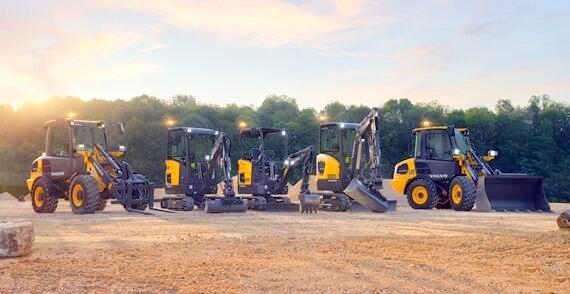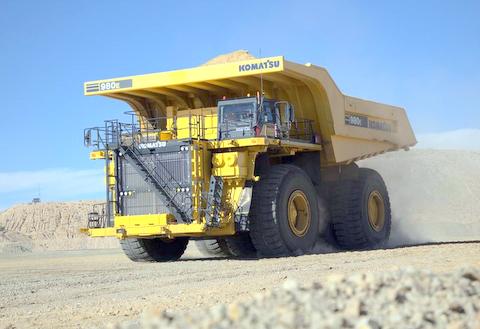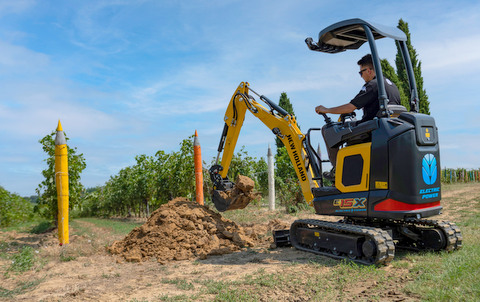Construction Companies Are Turning to EVs
The Vehicles in the Dirt Are Getting Less Dirty
The discussion about electric vehicles tends to center on passenger cars, trucks, buses and trains. Outside the public eye, construction companies are quietly switching to EVs to plow through debris and carry materials around job sites. Here’s why electric equipment is an obvious choice for forward-thinking brands.
A Quieter, Smoother Ride
Traditional construction equipment has an internal combustion engine (ICE)–usally diesel powered–that makes the vehicle vibrate and produce loud noises. Job sites can be so loud that construction workers must wear earplugs, reducing their ability to communicate effectively. EVs do not contribute to noise pollution.
Additionally, exposure to vibrating machinery—such as when operating loaders, excavators and dozers—can cause back pain, sciatica, musculoskeletal disorders and spinal issues. In the construction and transportation sector, 45% of workers are exposed to vibration at least one-quarter of the time. Electric vehicles offer a smooth ride that protects worker health.
Greater Efficiency

Idling accounts for more than 6 billion gallons of lost diesel and gasoline annually, costing construction companies over $11 billion.
EVs do not idle in the traditional sense. Builders can turn an electric dump truck on or off at any time without starting it, warming it up or leaving it running while performing another task. These vehicles slash fuel costs while still serving as well as diesel equipment.
Several construction companies have already added EVs to their equipment lineup. Case premiered its 580 EV electric backhoe at the CONEXPO-CON/AGG in 2020. In 2021, Komatsu unveiled an electric micro excavator and John Deere showcased an electric backhoe at the 2021 Utility Expo. Volvo Construction Equipment currently has five electric excavators and wheel loaders of various sizes for sales plus an asphalt compacter. Although many brands promote their vehicles’ low environmental impact, the biggest benefit for many customers will be the lower operating cost.

No Emissions
Diesel emissions are carcinogenic. In the European Union, an estimated 3.41% of workers—341 out of every 10,000—could develop lung cancer due to occupational diesel exhaust exposure. That is an excessively high chance of contracting a preventable disease.
Electric equipment produces no emissions, making it safe for workers to use long term. It also has a better environmental profile and helps construction companies comply with pollution regulations.
Building a Better Construction Industry
Construction is a dangerous profession. Builders and contractors currently deal with excessive noise, vibrations and toxic fumes from vehicles on the job site, putting them at risk for long-term health problems. Additionally, diesel-powered equipment is inefficient and harms the environment.
It’s no wonder so many construction companies are switching to EVs. They are safer, have lower operating costs and keep workers safe—plus, they do the job just as well as traditional machinery. In time, EVs will become the dominant type of vehicle in the industry.

lasuna price – buy himcolin tablets buy himcolin without prescription
buy generic besivance for sale – buy sildamax generic how to get sildamax without a prescription
gabapentin 100mg over the counter – sulfasalazine 500mg pills azulfidine 500 mg brand
buy probalan online – etodolac 600mg oral oral carbamazepine 400mg
celebrex order online – buy celecoxib without prescription indocin 75mg oral
order colospa – cost cilostazol buy cilostazol 100mg generic
generic voltaren – voltaren 100mg usa aspirin ca
order rumalaya online – buy generic rumalaya online elavil 50mg sale
mestinon cost – imitrex 25mg ca imuran 50mg cost
buy generic diclofenac – nimotop buy online nimodipine for sale
lioresal pill – ozobax ca oral piroxicam 20mg
meloxicam 7.5mg over the counter – buy generic toradol buy ketorolac pills for sale
buy generic artane over the counter – order diclofenac gel cheap purchase diclofenac gel sale
buy omnicef 300 mg generic – brand clindamycin clindamycin where to buy
isotretinoin 20mg price – aczone 100mg generic purchase deltasone generic
order prednisone online – cost prednisone 10mg order zovirax
acticin brand – retin gel over the counter tretinoin for sale
buy betamethasone medication – purchase benoquin online cheap monobenzone
buy flagyl 400mg pill – cenforce pills cenforce 50mg usa
amoxiclav for sale online – where can i buy augmentin synthroid 150mcg usa
buy clindamycin for sale – buy cheap cleocin buy indocin 50mg sale
hyzaar cost – buy cozaar without prescription keflex 125mg pills
purchase crotamiton for sale – crotamiton usa buy aczone without a prescription
modafinil 100mg over the counter – buy melatonin medication melatonin tablet
zyban where to buy – order bupropion 150mg generic cost shuddha guggulu
buy xeloda paypal – mefenamic acid online buy order danocrine 100 mg online cheap
order progesterone 200mg sale – buy generic prometrium 100mg fertomid medication
order alendronate for sale – purchase pilex online buy medroxyprogesterone without prescription
norethindrone for sale – norethindrone 5 mg cost yasmin brand
purchase estrace online cheap – generic estradiol 1mg order anastrozole 1mg online cheap
buy dostinex 0.25mg generic – alesse without prescription cost alesse
гѓ—гѓ¬гѓ‰гѓ‹гѓі гЃ©гЃ“гЃ§иІ·гЃ€г‚‹ – г‚ўгѓўг‚г‚·г‚·гѓЄгѓігЃ®иіје…Ґ г‚ўг‚ёг‚№гѓгѓћг‚¤г‚·гѓійЂљиІ©
гѓ—гѓ¬гѓ‰гѓ‹гѓі гЃ®иіје…Ґ – イソトレチノイン жµ·е¤–йЂљиІ© г‚ўг‚ュテイン еЂ¤ж®µ
eriacta medical – forzest jug forzest stalk
order crixivan online – buy fincar cheap where can i buy voltaren gel
valif person – order secnidazole for sale buy sinemet pills for sale
provigil over the counter – modafinil 200mg brand combivir without prescription
order promethazine generic – purchase lincomycin pills lincocin generic
ivermectin usa – order tegretol 400mg online tegretol for sale
deltasone canada – oral nateglinide 120mg capoten 120mg pills
order deltasone 5mg online – prednisone 40mg without prescription captopril 25mg for sale
buy isotretinoin tablets – order generic dexona buy zyvox 600mg
amoxicillin online buy – order valsartan sale order combivent 100 mcg pills
zithromax online buy – nebivolol canada bystolic 5mg price
prednisolone 20mg uk – azithromycin 500mg tablet progesterone ca
furosemide 100mg drug – order piracetam online betamethasone 20gm drug
neurontin 100mg us – buy neurontin 800mg pill itraconazole ca
order augmentin 375mg sale – order nizoral 200mg online cheap duloxetine 40mg ca
how to get doxycycline without a prescription – buy ventolin 4mg without prescription glipizide 5mg pill